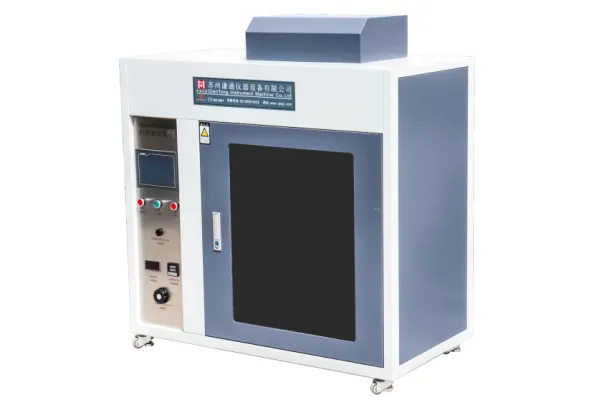Metal Material Testing Machines: Ensuring Quality and Reliability in Modern Manufacturing
2024-08-16
In the world of manufacturing and construction, the quality and reliability of metal materials are paramount. Whether it's for aerospace components, automotive parts, or construction materials, ensuring that metals meet the required standards is crucial for safety, performance, and longevity. This is where metal material testing machines come into play. These machines are essential tools used to evaluate the properties and performance of metals, ensuring that they meet industry standards and specifications. In this blog, we will explore the significance of metal material testing machines, the types of tests they perform, and their impact on various industries.
1. What is a Metal Material Testing Machine?
A metal material testing machine is a specialized device used to assess the physical and mechanical properties of metal samples. These machines apply various forces and conditions to the metal samples to measure attributes such as strength, hardness, ductility, and fatigue resistance. The data obtained from these tests are used to ensure that metals meet the required standards for their intended applications.
Key Features of Metal Material Testing Machines:
- Precision: High accuracy in measuring mechanical properties and ensuring that metals meet specific standards.
- Versatility: Ability to perform a wide range of tests on different types of metals and alloys.
- Data Analysis: Advanced software for analyzing test results and generating comprehensive reports.
- Automation: Some machines offer automated testing processes to improve efficiency and consistency.
2. Types of Metal Material Tests
Metal material testing machines can perform a variety of tests, each designed to assess different properties of metals:
- Tensile Testing: This test measures the strength and ductility of metals by applying a uniaxial tensile force to a sample until it fractures. It provides information on tensile strength, yield strength, elongation, and reduction of area.
- Hardness Testing: Hardness tests evaluate a metal’s resistance to deformation or indentation. Common methods include Rockwell, Brinell, and Vickers hardness tests, each using different scales and techniques.
- Impact Testing: Impact tests measure a metal’s ability to absorb energy during a sudden impact. The Charpy and Izod impact tests are commonly used to assess toughness and resistance to fracture.
- Fatigue Testing: This test determines how metal materials perform under cyclic loading conditions. It measures fatigue strength and endurance limits, which are crucial for components subjected to repeated stresses.
- Compression Testing: Compression tests assess how metals withstand compressive forces, providing information on compressive strength and behavior under axial loads.
- Bend Testing: Bend tests evaluate the ductility and flexibility of metal samples by applying a bending force until the sample deforms or fractures.
3. Benefits of Metal Material Testing Machines
The use of metal material testing machines offers numerous benefits for manufacturers, engineers, and quality control professionals:
- Ensuring Quality and Safety: Testing ensures that metals meet the required standards and specifications, reducing the risk of failure and enhancing the safety and reliability of products.
- Material Selection: Accurate testing helps in selecting the appropriate metals and alloys for specific applications, optimizing performance and durability.
- Compliance with Standards: Testing machines help manufacturers comply with industry standards and regulations, ensuring that products meet legal and safety requirements.
- Performance Optimization: By understanding the mechanical properties of metals, manufacturers can optimize material formulations and processing techniques to improve product performance.
- Cost Efficiency: Identifying potential issues early in the production process can reduce costly recalls, repairs, and replacements, leading to overall cost savings.
4. Applications Across Industries
Metal material testing machines are widely used across various industries, each with specific requirements and standards:
- Aerospace: In the aerospace industry, rigorous testing is essential to ensure that metals used in aircraft and spacecraft meet high standards for strength, durability, and resistance to extreme conditions.
- Automotive: The automotive industry relies on metal testing to ensure that components such as engines, chassis, and safety features meet performance and safety standards.
- Construction: In construction, metal materials such as steel and aluminum are tested for structural integrity and load-bearing capacity to ensure the safety and stability of buildings and infrastructure.
- Manufacturing: Metal material testing is crucial in manufacturing for quality control and product development, ensuring that raw materials and finished products meet required specifications.
- Energy: The energy sector, including oil and gas, uses metal testing to assess the durability and performance of materials used in pipelines, drilling equipment, and energy infrastructure.
5. Future Trends and Innovations
As technology advances, metal material testing machines are evolving to meet the demands of modern manufacturing and research:
- Advanced Automation: Automation and robotics are being integrated into testing machines to enhance efficiency, accuracy, and reproducibility of tests.
- Data Integration: Advanced data analytics and machine learning are being used to analyze test results and predict material behavior under various conditions.
- Miniaturization: Compact and portable testing machines are being developed for on-site testing and field applications, providing flexibility and convenience.
- Sustainability: There is a growing focus on developing testing methods that minimize environmental impact and promote sustainable practices in material testing and manufacturing.
In conclusion, metal material testing machines play a vital role in ensuring the quality, safety, and performance of metal components across various industries. By providing accurate and reliable data on the physical and mechanical properties of metals, these machines contribute to the development of high-quality products and the advancement of technology. As industries continue to evolve, metal material testing machines will remain essential tools in maintaining standards and driving innovation in manufacturing and engineering.



